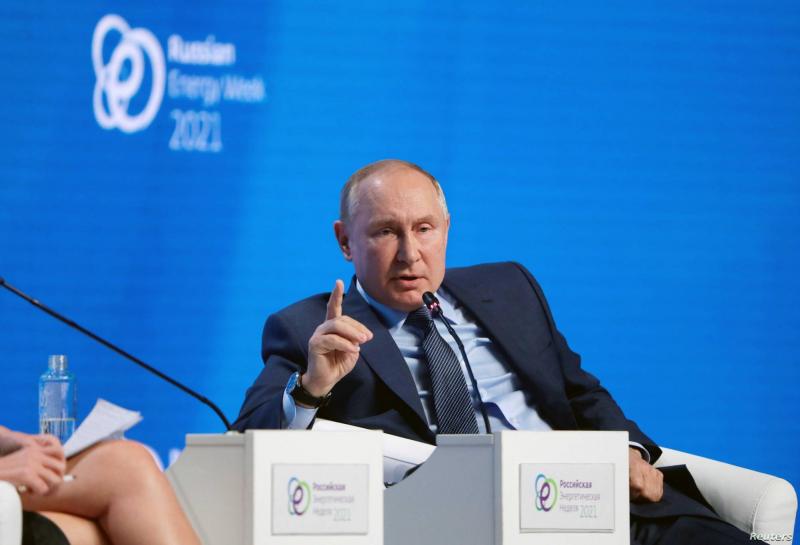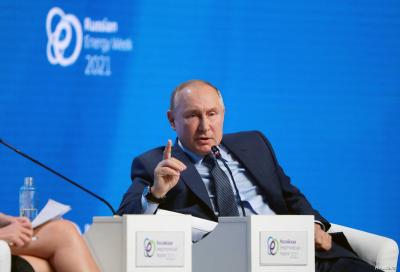Axios reported that Russian President Vladimir Putin is determined to exploit the European energy crisis to his advantage, even though Russia is not the cause of the crisis affecting many European countries. Anna Mikulska, a non-resident fellow in energy studies at the Baker Institute of Rice University, notes that "it is not surprising for Putin to use gas to serve geopolitical purposes, including increasing neighboring countries' dependence on Russia or punishing countries moving towards the West."
Axios stated that Russia's permanent representative to the European Union, Vladimir Chizhov, has previously hinted that geopolitical factors are indeed at play in this issue. Chizhov remarked, "Change the opponent to a partner and things will be solved easily," referencing how the European Union treats Russia.
The American site highlighted that gas prices fluctuate with every statement from Putin. The European energy crisis serves as an uncomfortable reminder of the eurozone's dependence on Russian gas. At least one country, Moldova, is at risk of a severe cold winter if Russia stops its gas supply.
In recent weeks, several European countries have faced an energy crisis where fuel and electricity prices have surged significantly before the winter, a season when people rely on natural gas for necessary heating in their homes. In contrast, U.S. President Joe Biden's energy security advisor, Amos Hochstein, stated that the Russian president is nearing the use of natural gas as a political tool amid Europe's acute energy shortage. Hochstein informed reporters that when asked if Putin is using gas as a weapon, "I think we are approaching that limit if Russia truly has supplies of gas available but chooses not to provide them unless Europe submits to other demands unrelated to energy."
Hochstein also indicated that gas prices in Europe are rising not only due to regional events but also because of a dry season in China, which has reduced hydroelectric energy production, as well as increasing global competition for natural gas.
For his part, Putin recently denied accusations that Moscow is exploiting the crisis, labeling them as "absolute nonsense and politically motivated chatter." Putin pushes European Union countries to agree to long-term contracts that will keep them dependent on Russian gas, asserting that they ensure stable supplies. He clarified that one way to alleviate the supply crisis is for Germany and the EU to expedite approval of the controversial "Nord Stream 2" pipeline, which bypasses Ukraine and would increase Russian gas supplies to Europe.
"Nord Stream 2" is a gas pipeline project transporting natural gas from the Baltic Sea from one of the largest reserves of gas in the world in Russia to Germany and several European countries. Ukraine contends that the pipeline would deprive Kyiv of at least $1.5 billion annually, which it currently earns from Russian gas transit through its territory to Europe, in addition to undermining its leverage against its Russian adversary.
Mikulska states that it is unclear whether Russia can indeed increase supplies sufficiently "to alleviate the pain in any way. But Russia is at least trying to exploit these circumstances to advance its own goals." Russian gas is a crucial part of energy imports for many European countries. In Germany, for instance, two-thirds of natural gas imports came from Russia as of 2018, with Russian gas accounting for 16% of total energy consumption. In many Eastern European countries, natural gas supplies come entirely from Moscow.
Despite seeking short-term deals, the European Union will continue to depend on Russian natural gas more than any other source, due to factors related to capacity, proximity, and existing infrastructure, according to Mikulska.




